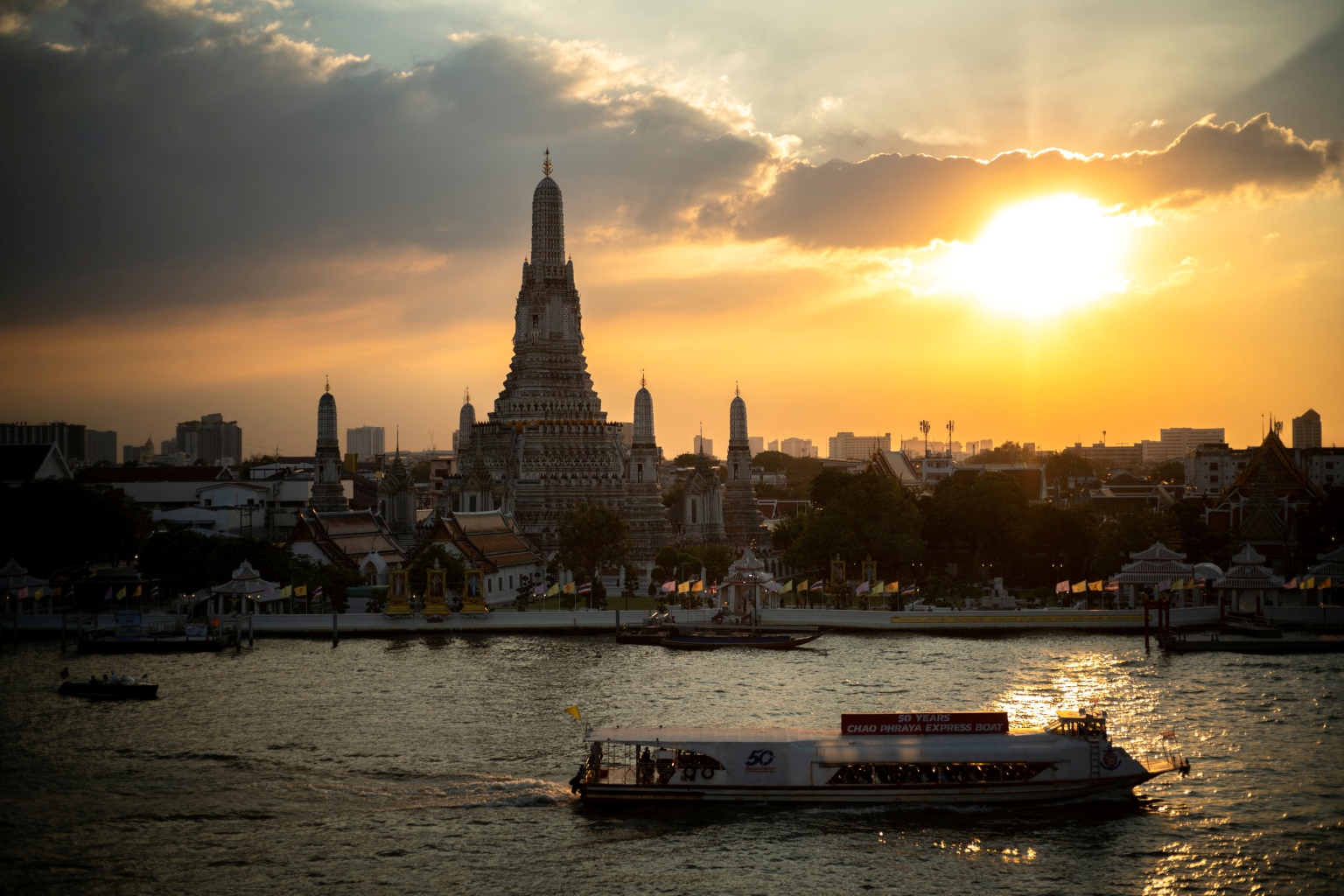Despite tourism comeback, Thailand's recovery hindered by inflation
Sign up now: Get insights on Asia's fast-moving developments

Since the beginning of this year, Thailand has received more than 700,000 foreign tourists.
PHOTO: REUTERS
BANGKOK - While Thailand's tourism industry heaved a sigh of relief last week following the country's biggest border reopening, rising inflation and a push for higher minimum wages are threatening its fragile recovery.
Thailand started the year optimistic, with its Finance Ministry forecasting an economic growth of 4 per cent for 2022.
Since the beginning of this year, Thailand has received more than 700,000 foreign tourists as compared with just 428,000 for the whole of last year. Increased tourist footfall is expected to bring in up to 1.2 trillion baht (S$48.4 billion), said the authorities.
But with accelerating inflation and Russia's war in Ukraine, the ministry on April 27 cut its gross domestic product forecast to 3.5 per cent.
"Towards the end of 2021 and early 2022, there were hopes of a buoyant post-Covid-19 recovery. But now, we are nearly halfway through the year, and global economic conditions have turned very unfavourable," said risk analyst Jay Harriman, a senior director at public policy consultancy Bower Group Asia.
Like in many other countries, Thailand's recovery has been thrown a curve ball by the Ukraine crisis that began in February, hindering economic growth and driving up the prices of energy and raw materials like wheat and steel. In turn, global costs of production and transport have surged.
"The war does not seem to be ending any time soon and we expect that the prices will remain high until next year. This definitely puts pressure on the purchasing power of Thai people," said Dr Kirida Bhaopichitr, director of the economic intelligence service at the Thailand Development Research Institute (TDRI), a think-tank.
From cooking oil to the national staple of Mama instant noodles, higher prices are imminent, as some producers have announced.
Thai President Foods, which manufactures Mama noodles, told its partners and retailers that rising costs of transport, wheat flour and palm oil have increased production costs, reported The Nation, quoting a source.
As a result, the wholesale cost of some of its noodles will increase from 143 baht to 145 baht (an increase of eight cents to S$5.85) for a box of 30. This will increase the retail price of one pack of noodles to 6.50 baht to 7 baht, up from 6 baht.
"An increase in food prices will affect lower-income households the most," said Dr Kirida, adding that studies have shown that these families spend nearly half of their income on food.
To help, the government has rolled out several stimulus packages to boost consumers' spending power and also launched targeted relief for lower-income groups.
"It is enough to get by but, of course, it will not cover 100 per cent of the price increase from inflation," said Dr Kirida.
Meanwhile, Thailand's headline inflation has remained high since last year, spiking to a 13-year high of 4.71 per cent in March.
In a slight slowdown, the consumer price index for April rose 4.65 per cent from the previous year, largely driven by higher food, transport and energy prices.

Thailand's headline inflation has remained high since last year, spiking to a 13-year high of 4.71 per cent in March.
PHOTO: AFP
Still, the Commerce Ministry said last week that it expects headline inflation to hit 5 per cent soon.
Domestic transport and energy prices rose following the lifting of a government-imposed cap on diesel prices at 30 baht per litre, which had been in place since December to mitigate surging oil prices but ended last month.
The new price ceiling is now set at 35 baht per litre, and the current price of 32 baht per litre will be gradually raised in the coming months.
The removal of the cap could result in an increase in transport fees - something transport firms have held back on since January, said the Land Transport Association of Thailand president Apichart Pairoonrueng.
"The association will hold a meeting soon to discuss appropriate transport fees and a suitable timeframe to implement the increase," he told local media.
A recent push for a higher minimum wage across Thailand by labour unions has also reached a deadlock as the authorities and businesses baulk at the proposed flat rate of 492 baht daily, up from the range of 313 baht to 336 baht.
While higher wages will benefit workers and help against the rising cost of living, Dr Kirida cautions against the nearly 50 per cent increase that unions are asking for as this could lead to spiral inflation.
Not only will the cost of goods and services rise once the minimum wage goes up, but the pay of employees not on minimum wage will have to increase too, she said.
Mr Harriman said concerns over labour and rising energy costs will also affect Thailand's foreign investment attractiveness.
But overall, there are signs of recovery, said economist Nonarit Bisonyabut, noting that while the GDP is nowhere near pre-pandemic levels, it grew 1.6 per cent in 2021 on the back of strong export demand after shrinking 6.1 per cent in 2020.
While the turnaround is small, Dr Nonarit, who is a TDRI research fellow, said he expects the economy to "keep going up, but quite slowly" and it could return to pre-pandemic levels by next year.


